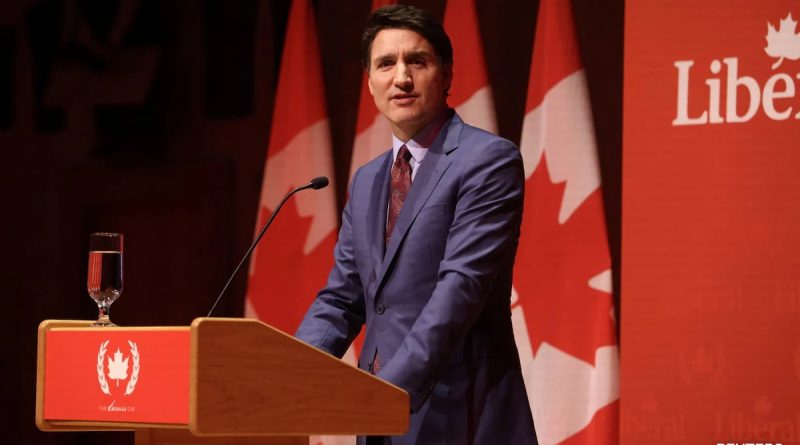Transitioning from Political Dynasty to Canada’s 23rd Prime Minister
Justin Trudeau Resigns as Canada’s Prime Minister and Liberal Party Leader
Justin Trudeau, the Prime Minister of Canada, announced his resignation as the leader of the Liberal Party on Monday. This decision came as a shock to many, as Trudeau’s popularity had been plummeting, and there was growing dissent within his party. At the same time, there was a surge in support for the Conservative Party, indicating a significant shift in the political landscape of Canada.
Trudeau’s nine-year tenure as Canada’s leader was marked by both achievements and challenges. He now remains the caretaker prime minister until his successor is chosen, a process that must be completed before October 20, 2025, when Canada is scheduled to hold national elections.
Justin Trudeau: Carrying on a Family Legacy
Born on December 25, 1971, in Ottawa, Justin Trudeau comes from one of Canada’s most prominent political families. His father, Pierre Trudeau, served as Canada’s 15th Prime Minister, while his mother, Margaret Trudeau, also brought public attention to the family as a socialite and mental health advocate. Trudeau’s maternal grandfather, James Sinclair, was a politician and served as the Minister of Fisheries in the cabinet of Prime Minister Louis St. Laurent. He also had a military background, serving in the Royal Canadian Air Force during World War II.
Entry into Politics and Rise to Power
Although not initially inclined towards a political career, Justin Trudeau entered politics in 2007 by running for the Liberal Party’s nomination in the riding of Papineau. He won the nomination and later secured a seat in the 2008 federal election. Trudeau quickly ascended through the party ranks, eventually becoming the leader of the Liberal Party in 2013. In 2015, he led the party to a majority government in the federal election, becoming the second-youngest prime minister in Canadian history at 43 years old.
Trudeau’s Initiatives and Policies
During his time in office, Trudeau implemented several significant policies and initiatives. These included the Canada Child Benefit, the legalization of recreational marijuana, and the introduction of a federal carbon tax. Additionally, Trudeau has been a vocal advocate for climate action, reconciliation with Indigenous peoples, diversity and inclusion, and the legalization of cannabis.
Controversies and Challenges
Despite his accomplishments, Trudeau’s tenure was marred by several controversies. The SNC-Lavalin Affair, the Blackface Scandal, the WE Charity Scandal, the Aga Khan Row, and the Freedom Convoy protests were some of the challenges he faced during his time as Prime Minister. These incidents drew criticism and scrutiny, impacting his reputation and the perception of his leadership.
In conclusion, Justin Trudeau’s resignation as Canada’s Prime Minister and Liberal Party leader marks the end of an era in Canadian politics. As the country prepares for a new leader, Trudeau’s legacy, both positive and contentious, will shape the future trajectory of the nation.

